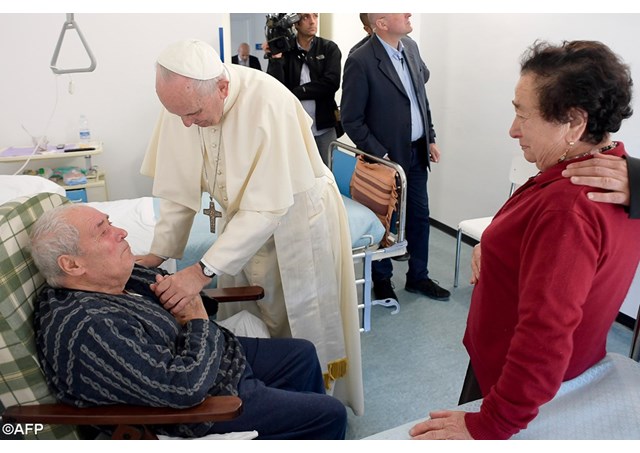
Religions unite to care for elderly

(Vatican Radio) An inter-faith Charter promoting palliative care for the elderly across the world has been launched at the Vatican.
Religious leaders, patients and medics attended a conference to discuss future challenges of a rising elderly population and an increasing demand for social care,
The 2-day event, organized by the Maruzza Foundation and the Pontifical Academy for Life, was to promote the right of all older people affected by chronic conditions to receive palliative support.
Vatican Radio’s Linda Bordoni spoke to Professor of Medicine at George Washington University Christina Puchalski, who attended the launch and explained that why a Charter is so impotant in an aging society.
Listen to the interview:
Prof Puchalski said: “It saddens me to see particularly in the United States how older people are put aside, ignored, and not respected because they can’t move or think as fast as the younger generation.
“The focus of all of our lives should be about living meaningful lives with dignity and respect and be able to accomplish things we want to accomplish regardless of our abilities or disabilities. And for the older adult to be pushed aside and not to be respected is a tragedy. Many times my patients who are older suffer deeply because they no longer believe they have a place in society.”
She explained that palliative care is inter-disciplinary, meaning that different perspectives can allow for a more holistic care plan to be written up to focus on biological, emotion and spiritual well-being of the patient.
The message that has to be given to healthcare providers is clear, according to Prof Puchalski. “Listen to our patients’ stories, don’t treat them as a number because of their age. Treat them as human beings and provide the best care possible for them.”
Prof Puchaski had previously attended a conference at which Pope Francis spoke and was touched by his “presence” to the elderly. She said: “When he knelt down and held a woman who couldn’t get up and he knelt lower than her showing respect and he just looked at her, held her hands. It is that presence - that is the cornerstone of my practice with my patients too and I hope everyone has that.”
All people should remember the spiritual dimension of human life, Prof Puchaski added. “All of us have that deep yearning within to find that ultimate meaning in our lives. And all of us as care givers – religious and care workers - should support that journey.”
For more information on Prof Puchaski’s work with the Global Network for Spirituality and Health, visit www.gnsah.org.
| All the contents on this site are copyrighted ©. |


